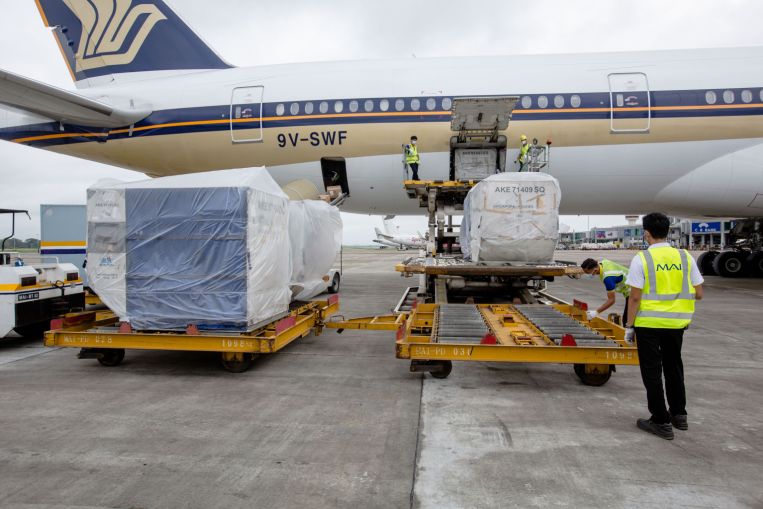SINGAPORE – Temasek’s participation in its portfolio companies’ capital raises is decided on a “situation-by-situation” basis, depending on the outlook for each firm.
“It’s not a fixed plan, where we say, ‘this is how much we’re going to deploy, support our companies’, because, unfortunately, things don’t come out this way,” said Mr Nagi Hamiyeh, joint head of Temasek’s investment group and head of portfolio development at Temasek International.
He was replying to questions during the state investor’s annual review on Tuesday (July 13) about its support for several local portfolio companies over the past year, such as Singapore Airlines (SIA), and the demerger of Sembcorp Marine (Sembmarine) from Sembcorp Industries.
Mr Hamiyeh pointed to the strengths of both SIA and SembMarine and the value they hold, and noted that Temasek’s support aims to strengthen the positions of both firms.
Addressing its participation in corporate restructuring, such as in the cases of Sembcorp Industries, Sembmarine and real estate player CapitaLand, he stressed that these decisions are taken by the boards of the companies themselves.
“Our stated governance is very, very clear: We do not interfere with our companies’ day-to-day management, we leave it to the boards,” he said, adding that Temasek advocates having strong boards that work with the firms’ management,” Mr Hamiyeh said.
“However, as a very active shareholder, we do provide our opinions.
“We do like to think that from time to time, we add value by providing different perspectives in terms of what we see in the world or what we see other best-in-class companies doing, and we work with our companies as partners to try and create value for every shareholder.”
When asked whether SIA would be involved in merger and acquisition plays in the aviation industry, he said that Temasek believes that the airline is well capitalised for the next two years and will come out stronger as a result of that.
“Now, if their strategy stipulates that they need to consolidate, of course, as a supportive shareholder, we are going to have a look at their strategy,” Mr Hamiyeh said, stressing that it is up to the board and management of the firm to come up with the right strategy and for Temasek to decide if it is supportive or not.
Mr Fock Wai Hoong, Temasek International managing director for investment in South-east Asia as well as telecommunications, media and technology, was asked whether the state investor had plans to issue retail bonds. He answered that Temasek remains flexible and open to bond financing.
Its decision will be driven by investment opportunities, market conditions and its liquidity and gearing levels, he added.
Commenting on the investment firm’s outlook on China, Temasek International joint head for North America and technology Mukul Chawla said that it is optimistic about China and continues to look at growth opportunities in the market.
China is Temasek’s largest market, with assets there making up about 27 per cent of its portfolio.
Mr Chawla said Temasek is mindful of regulation and changes in regulation in any country it invests in, but that tightening regulations in China do not change Temasek’s stance on the country and the opportunities it affords.













































